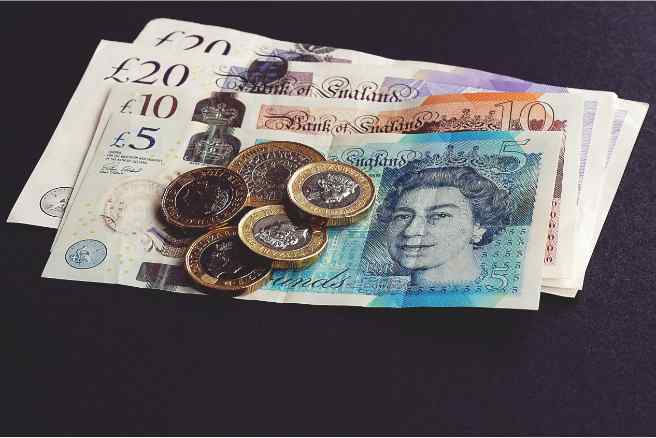Owning a rental property can be an exciting investment opportunity. However, determining how much rent to charge tenants is a challenging decision that requires careful consideration.
According to recent studies, many landlords are not pricing their Buy-to-Let (BTL) appropriately as mortgage rates continue to outgrow rental prices with a 3% margin. Charge too little, and you lose out on potential income and profit; charge too much, and you risk long vacancies and tenant turnover.
As a result, one common question among property investors is: how much should I charge for rent? Finding the optimal rent amount that maximises your return on investment while also satisfying potential tenants requires evaluating a number of key factors that we’ll discuss in this guide.
How Much Should I Charge for Rent? (4 Factors to Consider)
If you’re wondering how much to charge for rental properties, the average monthly rent in the UK is £1,279. However, as a property investor, you need to determine how much you should charge for your specific rental properties to maximise your return on investment.
The big question on your mind now is: “What rent should I charge, then?”

There are several factors to consider when pricing a rental property, including:
- Location
- Property size and features
- Rental demand
- Tenant quality
1. Location
The desirability and demand of the location significantly impact pricing. Property developments in rapidly growing neighbourhoods or close to transport links, schools, and amenities are the best places to invest in the UK for higher rents. You should research rents for similar rentals or comparable properties in the local area to calculate a rental price that’s competitive.
2. Size and Features
Larger properties with additional bedrooms, bathrooms, and parking spaces, as well as new-build investment properties with modern features like new kitchens, tend to charge higher rents. Survey the sizes and features of other rentals in your target location to price accordingly.
3. Demand
You may wonder: “How do I determine the rent value of my home based on demand?”
If there is high demand for rentals in your area, especially for properties like yours, you can likely charge on the higher end of the range. When demand is low, you may need to price more competitively to attract suitable tenants in a reasonable time frame. Partnering with UK property investment experts is a great way to ensure you’re purchasing properties in up-and-coming areas with high rental demand.
4. Tenant Quality
One troubling question among property owners is: how much rent can I get for my house?
The type of tenant you want to attract influences your pricing. Professional tenants with a good income and credit history will usually pay a premium for a high-quality rental. If you prefer tenants with fluctuating income or students, your pricing should reflect that target market.
If you don’t have the time to vet tenant candidates, consider hiring a lettings and management company.
While several factors influence the final price you set rent payments at, your aim should be to charge rents that return a good rental yield. But how do you estimate rental yields to determine suitable pricing? Read on to learn more!
Using Rental Yield to Determine Optimal Rent Price
How much should I rent my house for?
You can estimate how much to charge for rent from the rental yield of the area where the house is located. This measures the annual rental income as a percentage of the property’s value. The higher the yield or average rental value, the better the return on your investment.
How Does Location Affect Rental Yield?
The average rental yield in the UK is currently 5.49%. However, this can vary significantly based on a property’s purchase price and the location and type of property.
For example, yields tend to be higher in the North Eastern and North Western locations (like Manchester) but lower in London and the South East. Terraced houses and flats also typically offer higher yields than detached houses, influencing how much to rent a house. Hence, consider these factors before buying property in the UK.
How to Estimate Rent Using Rental Yield in 5 Steps
To calculate your rental yield, follow these steps:
- Determine your property’s estimated market value. You can get a valuation from an estate agent or check recent selling prices of comparable properties in your area.
- Establish a realistic monthly rent price for your property based on rents for similar places nearby. Aim for the upper end of the range to maximise your return.
- Multiply the monthly rent by 12 to get the annual rental income.
- Divide the annual rental income by the property value and multiply by 100 to get the rental yield percentage.
- Compare your yield to the average for your region and property type. If it’s significantly below average, you may want to consider increasing your rent price to an appropriate level. However, be careful not to price it too high, or you may struggle to find suitable tenants.
Tip: Alternatively, you can determine how much you should charge using a rent calculator.
Calculating your rental yield to set a competitive rent price is your first step toward establishing solid and sustainable returns over the long run. Read on to learn additional strategies that can help you achieve reasonable rent price-to-house values.
3 Strategies for Setting the Right Rent Price
Coming up with a reasonable rent price for your investment property is crucial to achieving your financial goals. As an investor, your aim should be generating high monthly rental income and yields on your investment while ensuring maximum capital gains.

These strategies can aid in achieving your property investment goals:
- Analysing the local market
- Factoring in expenses
- Staying competitive
1. Analysing the Local Rental Market
Conduct thorough research on rental rates of comparable properties in the neighbourhood. Check sites like Rightmove, Zoopla, and local Facebook Marketplace to determine the going rate for similar properties in terms of number of bedrooms, square footage, amenities, and overall condition. Aim for the higher end of the range to maximise your return on investment, but be cautious of overpricing.
2. Factoring in Expenses
Calculate your annual costs of renting out, including mortgage payments and property management fees like insurance, maintenance, and any professional fees. Make sure the rent covers all expenses and also provides a reasonable profit margin. A good rule of thumb is to target a rental yield of about 5–8% of the property value to make the investment worthwhile.
Including costs in your analysis will help you determine a reasonable figure when potential renters ask the question: how much rent should I pay?
3. Staying Competitive
While you want to up rent prices to maximise your rental income, don’t price the property so high that it sits vacant. It’s best to start with a slightly lower price and increase it steadily over time as demand allows. Review rates of comparable listings to make sure your property remains an attractive option for prospective tenants.
By methodically analysing the local market, accounting for costs, and staying competitive, you can feel confident you have set the optimal rent price for your investment property. But remember, a good property investment starts with choosing a good location. Contact UK property investment experts to help determine the best location for your next investment property.
Frequently Asked Questions
How much is my house worth to rent?
The rent your house is worth renting for depends on various factors, including location, size, condition, and local market trends. It’s advisable to consult a local property investment expert or use online property valuation tools to get an accurate estimate of the rental price. Always cross-check with similar properties in the area for a realistic figure.
How do you calculate rent?
To calculate rent, multiply the weekly rent by the number of weeks in a year (52) to get the annual rent. You can divide the annual rent by 12 to get the actual amount of the monthly amount. Keep in mind that rent is typically due in advance; hence, if you opt to collect monthly, it should be paid at the start of the month.
How much rent should I charge for a room in the UK?
To determine how much rent to charge for a room in the UK, consider that the average is £721 per month. However, excluding London, it drops to £630 per month. The cheapest regions are the North East of England and Northern Ireland, with average rents at £526 and £530 per month, respectively. Adjust your room rent according to your location and similar local listings.
Conclusion
How much can I charge for rent?
This is a question most buy-to-let investors seek answers to. Pricing your rental property appropriately to match current market value is crucial to your success, and this post has explained how to achieve this. But don’t forget — your property location determines its rental performance. Before you make your next BTL purchase, contact Baron & Cabot for the best high-yielding UK property locations.
Disclaimer: Any information provided by Baron & Cabot does not constitute financial advice and is for educational purposes only.

